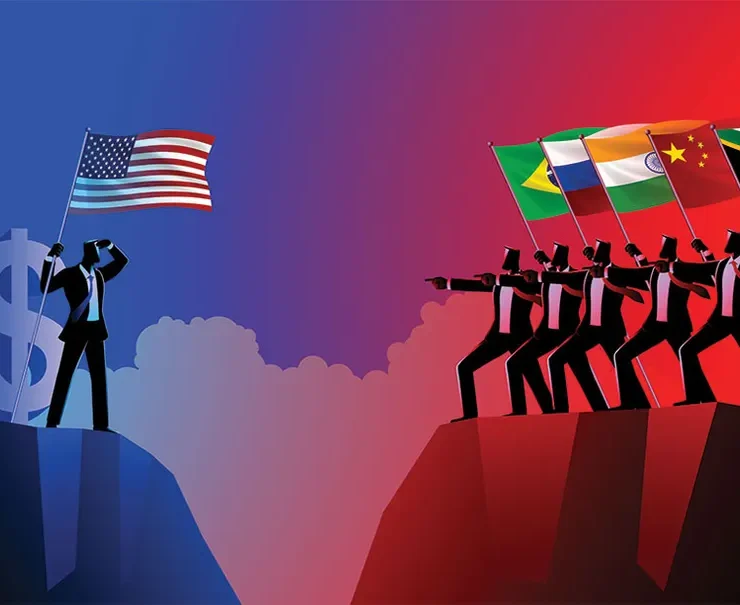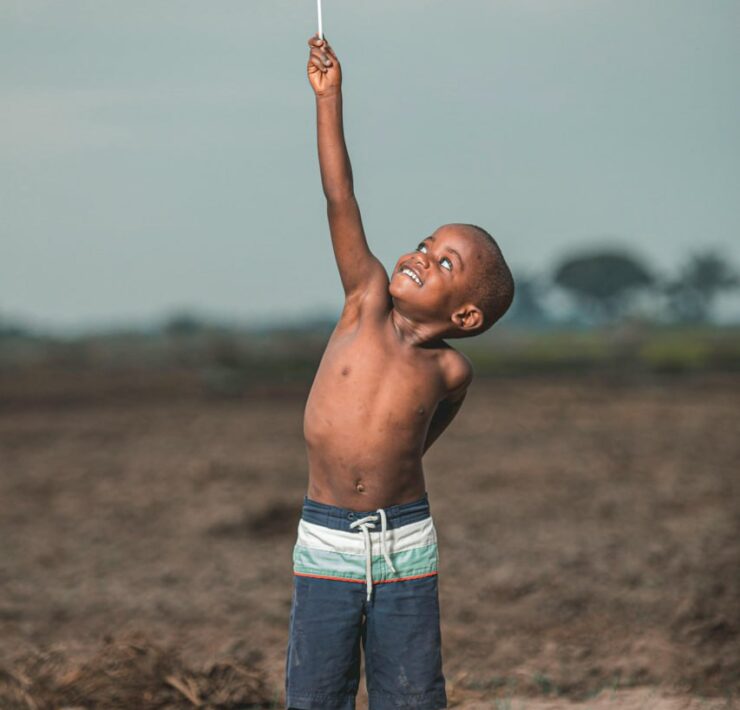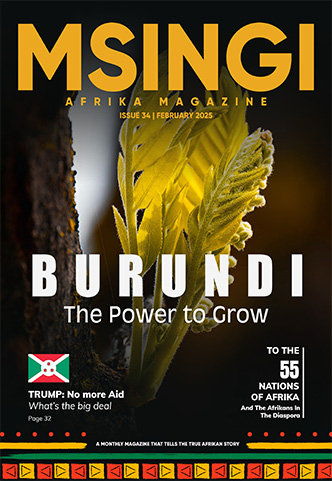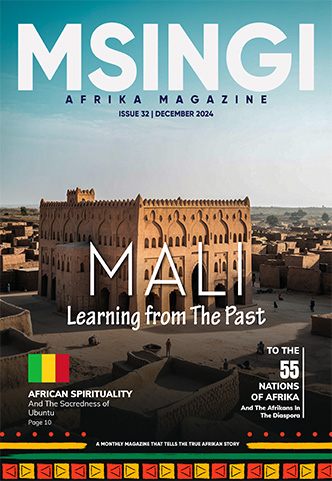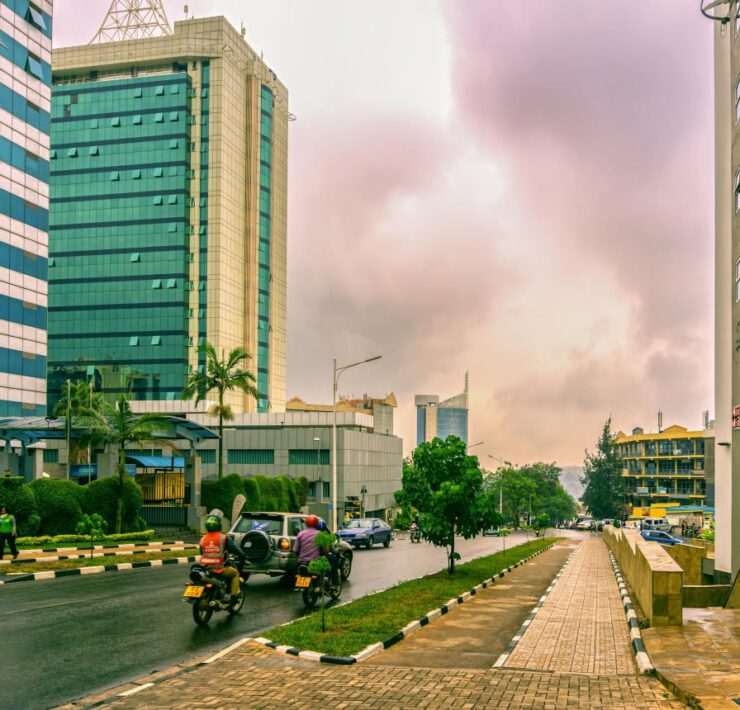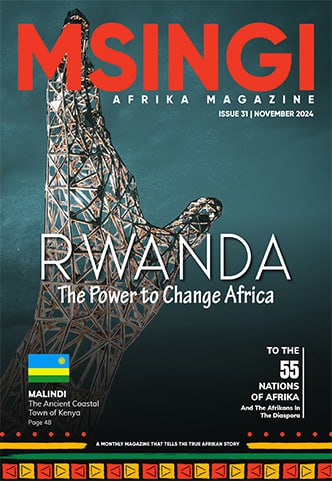
Samuel Phillips is a writer, graphic designer, photographer, songwriter, singer…
Chioma Phillips is the Editor of Msingi Afrika Magazine and…
Read Next

We share two perspectives of a common experience.
CHIOMA
A couple of months ago, I overheard a Chinese gentleman talking about Kenya’s standard gauge railway. He proudly said to another passenger, also a tourist – from Europe by the sound of his accent – ‘this train is old fashioned and slow. Our trains are faster. This is old technology, taking me back to the past.’ They laughed and the other tourist responded more sympathetically and said ‘this is much faster than it used to be.’
I have many concerns and opinions about the conversation that they had, one of the main ones was this:
“What would make one nation sell old technology to another?” I cannot fathom why it would enter into the heart of a nation or a person not to offer their absolute best as their norm. Why be willing to sell their leftovers? Not only that, but then squeeze them for payments on what they sold? For a [brief] moment, I suspended judgment on the one who had settled for the purchase of less than the best. Especially having, I’m sure, had occasion to even sample the facilities that this outspoken representative of that nation had so loudly proclaimed in the coach, to the hearing of anyone within earshot. I was not pleased with the choices that they had made, but I thought to deal with the aspect of the one offering supplies, in that instance.
Trying to place myself in the shoes of the seller, I thought to myself, “Why would I sell my brother or sister anything less than the best I have available? What does it convey about me?” I couldn’t come up with any answer, other than that in my nation of origin I do not have a national ethos that has determined that anyone who receives from my hand must receive nothing less than the best. Such that, at the end of the day, all that anyone can ever say about me will be they would rather lose money than give anything substandard that would cause their citizens to make such a bold proclamation on foreign soil. [For all those of you in business who are getting restless at this thought, I know of an Israeli-owned business in Kenya that – in the 90s and early noughties at least – would turn away business, rather than produce something sub-standard because of poor inputs from their clients. As a result, EVERYBODY wanted to work with them, so they made money. So, yes, it is possible EVEN in business.] I thought also of the gentleman who spoke so loudly and with such a boastful smile on his face…“Why would he be pleased that the nation of his birth had sold such an item to another land? Why brag that what he had back home was ‘better’, when his own nation is the one which had supplied the very train and railway that he had chosen to deride so unsparingly? At the very least, one would hold their peace or at least apologize that they hadn’t given their absolute best.”
It is a puzzle to me that it would be okay to look down on what came from one’s own soil. But, perhaps, that’s just me. I grew up constantly puzzled to discover that people could be mean to others or could decide to con other people. I just never understood it. I couldn’t function in environments like those. Still don’t, without God’s help. For me it was do all to the best of my ability and give my best or don’t bother; the times that I deliberately did otherwise have haunted me literally all my days. But to discover that it is considered a ‘sound business principle’ to be able to get away with making someone pay as high a price as possible, when you could make something available more affordably, or creating products which are designed to fail at some point in order to make people buy again at a later date, or to deliberately cheat someone who works for you out of benefits that you could so easily give them… or that a man or woman will stand to be elected to public office, for the sole purpose of making money instead of serving… I just could never wrap my head around it. So to sit and listen to this man, proclaim these words, while riding in this train from his land… I can’t.
SAMUEL
Just a while ago, I was in the train with my wife going from Nairobi to Mombasa. If you know me, I love road trips, well, that’s if I’m riding in a car. Train trips can be quite boring. No music, no stops for photography etc. But it’s way faster than a car and I appreciate that. We happened to sit close to some happy Chinese family playing cards. In their excitement they were a bit loud and that was fine really. Seated a few rows from where we were, a single Chinese male traveler was talking with another white guy and his family. They were talking about the SGR train. Then the Chinese guy while trying to compare the new high speed trains (about 350 km per hour) that they use in China with the SGR train, said “This train is old fashioned and slow. Our trains are faster. This is old technology, taking me back to the past”. They all laughed together over the joke and the journey continued. I can’t tell you why I paid attention to their chat but it got me thinking. I didn’t know that my wife too had paid attention. For the minute I started typing a few things about their conversation in my note pad, I saw my wife doing the same in her phone. Obviously, she was also interested in the comments about the SGR train.
I sincerely have no issues with the Chinese man’s comment or joke and neither do I have any issue with the train being slow or old tech, at least it’s one of the few that is working in Afrika. And I am grateful for that. I am however concerned for Afrika and my Afrikan people. You may likely guess where this article is going, but I really don’t mean anything harmful to anyone. I always have this question. What’s wrong with Afrika? What’s wrong with Afrikans? What’s the use of having so many educated people in Afrika without much change happening? The list of questions bugs my mind. However, the most important question I ask myself is; how did China, as a nation, move from being a downtrodden, aid-receiving, broken government in the ‘60s, to being a world heavyweight superpower in 2019, while Africa which saw most of her nations gain independence in the same 60s is still crawling and still begging for aid? I can’t put one answer to this. But as Kenyan Professor PLO Lumumba puts it in one of his speeches, “China simply gave her people true leadership.” And then I asked myself again, what is wrong with the leadership of Afrikan governments? I will leave you to answer that question yourself.
I read something online as I wrote this piece about China. It speaks of what happened in China between the years 1958 to 1960. It was during what China called The Great Leap Forward Period, created to activate Chinese Industrialization, in order to remove China’s dependency on the Soviet Union. The report had this to say:
“Economic development under the People’s Republic of China government started with about 150 development projects planned, financed and staffed by the Soviet Union. When political ideological differences between Mao Zedong and Nikita Khrushchev led to a split, the 15,000 Soviet engineers and staff on the development projects were withdrawn and the blueprints for the projects destroyed. China did not have the technological and financial resources to complete these projects on its own and Mao Zedong was made conscious of how vulnerable China was in depending upon outside aid, even from communist regimes. It was then that the conviction developed with Mao that China would industrialize on its own, pulling itself up by its own bootstraps, so to speak.”
I am sure many don’t know this fact, but that project failed and that failed project coupled with the famine that followed took with it no less than 20 million Chinese lives. That’s like a combination of two nations in Afrika. But not one aspect of that failed project defines China today. Why? China simply had a sit down, rewrote their narrative and took the position of servitude towards other nations for a season, while they used that time to improve their technology and by extension their economy.
Today, I do not think there are a lot of nations on the earth where China’s money has not been invested. That’s what can happen if Afrika will sit at one table of truth and sincerity and make out selfless plans that will rewrite the Afrikan narrative. Simply put, let Afrika stop defining herself from the stigma of slave trade, colonialism etc., those are old stories only fit for the dustbin.
A while ago I saw these statements online. They are believed to have been spoken by the Russian President Vladimir Putin. I do not know for sure the credibility of this statement, even if it’s not him who said it – it captures something about the Afrikan reality that we must change. It says… “Africa will never be independent. Africans believe in Europeans, Americans and Chinese more than themselves–they don’t trust themselves at all. A white man will commit crime in Africa but no action will be taken because African authorities view us as semi-gods, far from the truth. A black man can be abducted in Europe, get harassed or even killed, but no African authority will question. Africans present themselves as weak people with no hope especially when dealing with Europeans and Americans.
They are their own enemies. They hate each other and that gives their colonial masters power to continue exploiting African resources.”
“When an African becomes rich, his bank accounts are in Switzerland. He travels to France for Medical treatment. He invests in Germany. He buys from Dubai. He consumes Chinese. He prays in Rome or Mecca. His children study in Europe. He travels to Canada, USA, Europe for tourism. If he die, he will be buried in his native country of Africa. Africa is just a cemetery for Africans. How could a cemetery be developed?” ~Putin Asks!
Afrika has come of age to determine where she should be in the overall picture of things. She just needs to see her own picture clearly and then make it happen for real.
Subscribe now for updates from Msingi Afrika Magazine!
Receive notifications about new issues, products and offers.
What's Your Reaction?
 PIN IT
PIN ITSamuel Phillips is a writer, graphic designer, photographer, songwriter, singer and a lover of God. As an Afrikan content creator, he is passionate about creating a better image and positive narrative about Afrika and Afrikans. He is a true Afrikan who believes that the true potential of Afrika and Afrikans can manifest through God and accurate collaborations between Afrikans. Afrika is the land of kings, emperors, original wisdom, ancient civilizations, great men and women and not some road-side-aid-begging poor third world continent that the world finds joy in undermining.
 PIN IT
PIN ITChioma Phillips is the Editor of Msingi Afrika Magazine and the host of Msingi Afrika Television. Her hope is to see the Truth shared, with all who will listen, for the transformation of the people and the continent of Afrika - and the world. She believes passionately in the critical role that Afrika and Afrikans have to play on earth right now and hopes to ignite the spark that will cause them to see and believe who they are, so that they can live out their Truest lives for the remainder of their days.
















